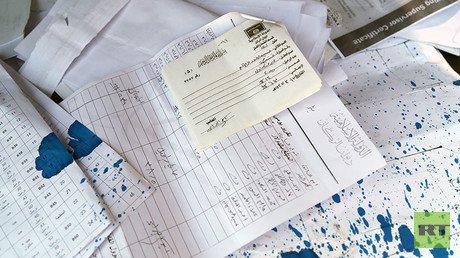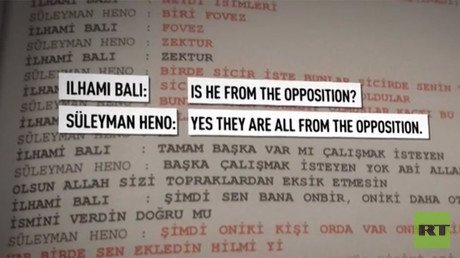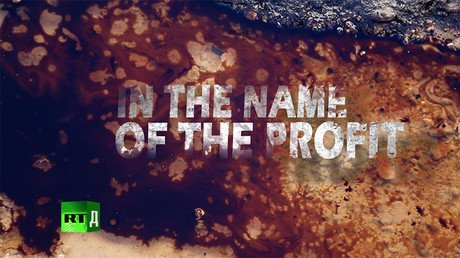ISIS digs trenches, plants mines on Syrian border as Turkish military looks away (EXCLUSIVE)
The Turkish military has been ordered to ignore Islamic State’s activities on Turkey’s border with Syria, allowing the jihadists to dig trenches and plant mines unimpeded, locals in the frontier town of Karkamis told RT.
The government of Turkey’s president, Recep Tayyip Erdogan, has recently been keen to demonstrate its tough stance on Islamic State (IS, formerly ISIS/ISIL), with reports of Turkish military operations against the terror group filling the national headlines.
However, RT learned that the situation on the ground is very different from that presented by Ankara when its correspondent, Lizzie Phelan, visited the Turkish town of Karkamis near the border area in Syria controlled by IS.
IS militants and their fortifications in the Syrian town of Jarablus are “strikingly visible” from the other side of the frontier, RT’s Phelan reported.
“When we zoom across the border, on top of… the building we can clearly see an IS flag,” she said.
Phelan said she saw IS “vehicles moving just across the fence [on the border]” and heard the jihadists “calling over their loudspeakers, saying things like ‘God help ISIS in its fight.’”
The terrorist group, which controls 98 kilometers along the border, had also dug extensive trenches – a task taking months to complete, but completely ignored by the Turkish army.
Bulent Polat, a local shop owner who is one of the few people remaining in Karkamis, confirmed to RT that the jihadists built the fortifications under the nose of Turkish troops.
“These are the trenches ISIS dug, we could seem them… We could easily watch them doing it. It’s very close to the border, like 50 meters away. If you can see the trenches from here now, you should have seen them being dug with all that big equipment,” he said.
Bulent has shot numerous videos showing how the Turkish military has turned a blind eye to the jihadists’ activities in Jarablus.
Among other things, they show how IS militants freely approached Turkish army positions and planted mines unimpeded.
The minefields around Jarablus eventually made it impossible for civilians to flee the IS-held town.
“Once when ISIS fired a rocket, when some top army officials came here we asked: ‘Why are you not taking action?’ They said the order from the top is only to take security measures for the soldiers,” Bulent said.
The shop owner believes that “if the army gets the order it will take only 24 hours for them to finish IS” in the area.
However, it’s not only the Turkish security forces, but also the US-led coalition that is reluctant to take action against IS.
“Whenever we saw a [coalition] plane in the sky, we would say: ‘Hey there is the faker,’” Bulent said.
He also pointed out that the Turkish-Syrian border is far from being impenetrable and offered to help the RT crew to cross it.
Bulent told Phelan that to make it to IS-held territory, she had to wear a burqa, a garment obligatorily worn by women in some Muslim states, but warned that this alone wouldn’t ensure her safety.
“You are not going to identify yourself as journalist, otherwise you are gone,” he added.
The locals believe that members of Erdogan’s ruling AKP party are “traitors” that cannot be trusted since they abandoned their own people to live side by side with IS.
“I won’t vote for AKP even if they offer me the whole Karkamis,” he stressed.
Accusations that the Turkish government maintains ties with Islamic State have been mounting in recent months, with some alleging that Erdogan is supporting the terror group so that it can remove his geopolitical rival, Syrian President Bashar Assad.
An RT Documentary crew visited Shaddadi and some other towns in northern Syria in March, shortly after their liberation from the militants.
On arriving, the journalists saw invoices detailing large-scale illegal oil trade carried out by the jihadists, as well as Islamist propaganda brochures printed in Turkey.
They also interviewed an IS fighter detained by the Kurds who confirmed that the group was selling oil to Turkey.
The RT crew also filmed the passports of deceased and escaped jihadists, most of which contained stamps issued at Turkish border checkpoints.
In late 2015, the Russian military released a batch of evidence, including satellite images showing columns of oil tanker trucks moving into Turkey from areas controlled by Islamic State in Syria.
















